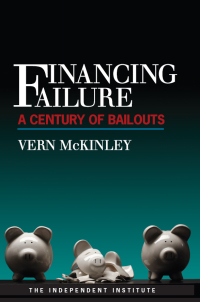Question
43. On May 1, Ricky agrees to install a concrete driveway at Lucy's house by May 30, in exchange for Lucy's promise to pay $2,300
43. On May 1, Ricky agrees to install a concrete driveway at Lucy's house by May 30, in exchange for Lucy's promise to pay $2,300 upon completion of the work. Which of the following statements is true? a. If Lucy later learns that other companies would have done the job for slightly less, she can cancel the contract based on inadequate consideration. b. Lucy can hire someone else to do the job without any liability to Ricky if Ricky hasn't completed the job, because until then Ricky has not given any consideration for Lucy's promise. c. Ricky can break his contract with Lucy to accept a better paying job because Lucy has not given consideration for Rickys promise to install the driveway until she pays the $2,300. d. Both Lucy and Ricky have given consideration for the other's promise; therefore, neither can refuse to perform without breaching the contract. 44. Ms. Moneybags promised her son $1,000,000 because he had been a good kid. The son quit his high paying job, sold his house at a big loss, bought a couple of surfboards, and moved to Tahiti. Moneybags doesn't pay. On these facts. . . a. The son should win because Ms. Moneybags is rich. b. Quasi-contract is the son's best theory for recovery. c. The son cannot win if the mom's promise was not in writing. d. Promissory estoppel is the son's best theory for recovery. 45. D owes C a debt the amount of which is subject to a good faith dispute. The parties agree to settle the debt, with D promising to pay C $ 1500 and C promising to release D on the $2500 debt. The settlement agreement: a. Is supported by consideration. b. Lacks consideration because C is not giving D any legal value. c. Lacks consideration because D is promising to perform a preexisting legal obligation. d. Is binding under UCC even though there is no consideration. 47. Under the "Battle of the Forms", if both parties are merchants, the different or additional terms become part of the contract unless . . . a. the offer expressly limited acceptance to its terms b. the additional terms materially alter the offer c. the offeror objects to the additional terms within a reasonable amount of time after receiving the acceptance d. all of the above 48. Vince made an offer to Neil that Neil rejected. Neil later made Vince a counteroffer that Vince rejected. Neil then tried to accept Vince's original offer but Vince told Neil that it was too late. Neil sues Vince. On these facts, the court should rule in favor of . . . a. Neil, because he later accepted Vince's offer. b. Neil, because Vince must deal in good faith c. Vince, because he could terminate his offer once Neil rejected it d. None of the above 50. Which of the following is true? a. if a mailed offer says nothing about how to accept, only a mailed acceptance is good b. when an offeree's form acceptance to a form offer for the sale of goods contains different items from those in the offer, the acceptance is never enforceable c. under the modern trend and the UCC, when an acceptance" contains only very minor variations from the offer, the acceptance is valid d. if an offer says that the offeree "may respond by mail," a mailed acceptance is good upon receipt
Step by Step Solution
There are 3 Steps involved in it
Step: 1

Get Instant Access to Expert-Tailored Solutions
See step-by-step solutions with expert insights and AI powered tools for academic success
Step: 2

Step: 3

Ace Your Homework with AI
Get the answers you need in no time with our AI-driven, step-by-step assistance
Get Started


